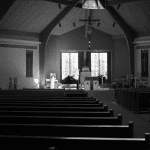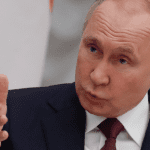Tatiana Aparecida de Jesus lived a life of drug addiction and suffering, but after finding salvation in the Lord, her life transformed for the better. She was ministered to by a Pentecostal church in downtown Rio, and she emphasized their kindness and acceptance upon joining them.
“The pastor hugged me without asking anything,” Ms. de Jesus shared in an interview with the Wall Street Journal. She is among the millions of Brazilians who converted to a Pentecostal or evangelical church since the pandemic started. “When you are poor, it makes so much of a difference when someone just says ‘good morning’ to you, ‘good afternoon,’ or shakes your hand,” she expressed about the church’s warm welcome.
For hundreds of years, Catholicism was the primary religion in Latin America. However, the Catholic faith presently has competition for the majority. Pentecostalism and agnosticism have crept in and diminished the prevalence of Catholicism.
In 2018, a research survey by Latinobarómetro found that most of the religious demographic in Uruguay, the Dominican Republic and five in Central America were not Catholic. According to researchers, Brazil, a country known for having the most Catholics in the world, is predicted to have that primary religion population decrease to a minority this year. This shift has already occurred in Rio. In the 2010 census, Catholics are only around 46% of the population.
“The Vatican is losing the biggest Catholic country in the world—that’s a huge loss, an irreversible one,” Brazilian demographer José Eustáquio Diniz Alves expressed his concern. If patterns progress as they have been, he predicts that Catholics will make up less than 50% of the Brazilian population by early July.
Some cite political changes as the reason behind this religious shift. Mr. Diniz Alves even pointed out that evangelical churches started using social media to reach out to people during the pandemic. Individuals have emphasized the Catholic Church’s failure to respond to the social crises, especially those in poverty. Latin Americans have expressed how they feel the Catholic Church is out of touch with the daily hardships of its members.
The conversion of many from Catholicism in Latin America has a significant influence on politics. In Brazil, the conversions to Pentecostal Christianity have shifted a lot of people to align with conservative views. This religion-induced political shift was evident when conservative President Jair Bolsonaro was elected in 2018. Although President Bolsonaro identifies as Catholic, in 2016, he was baptized by a Pentecostal pastor in the River Jordan leading up to his presidential campaign. Pentecostal and Evangelical Christianity are the primary religions of his cabinet members, which compose a third of Brazil’s congress. Even his wife is a member of an evangelical church.
Pope Francis and the Vatican have made their intent clear to coexist with other religious groups through meetings and collaborations.


